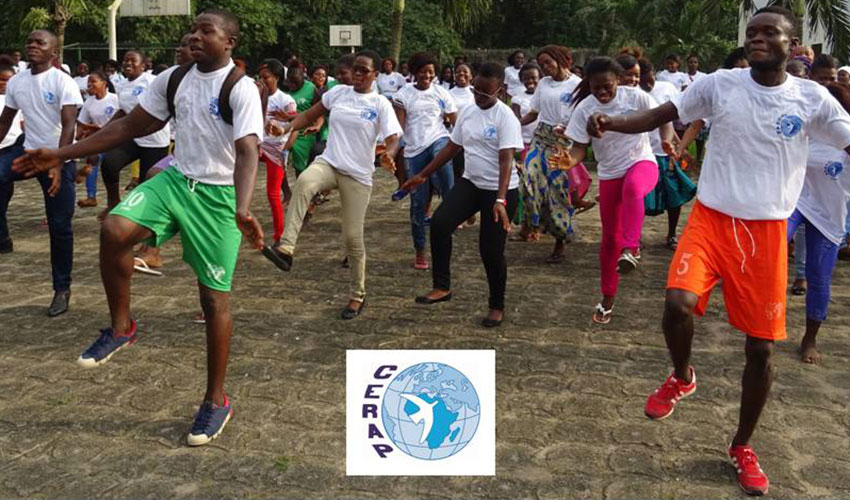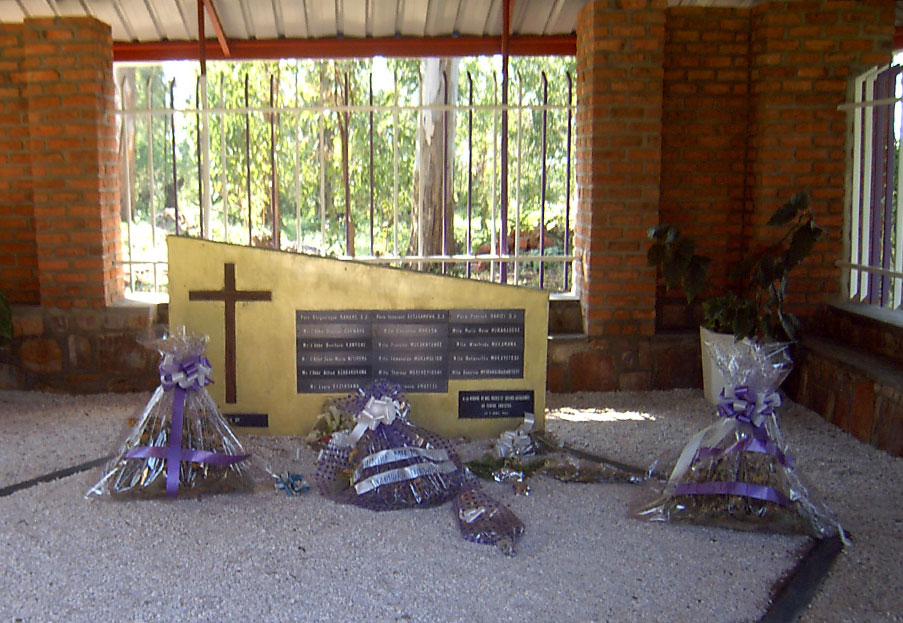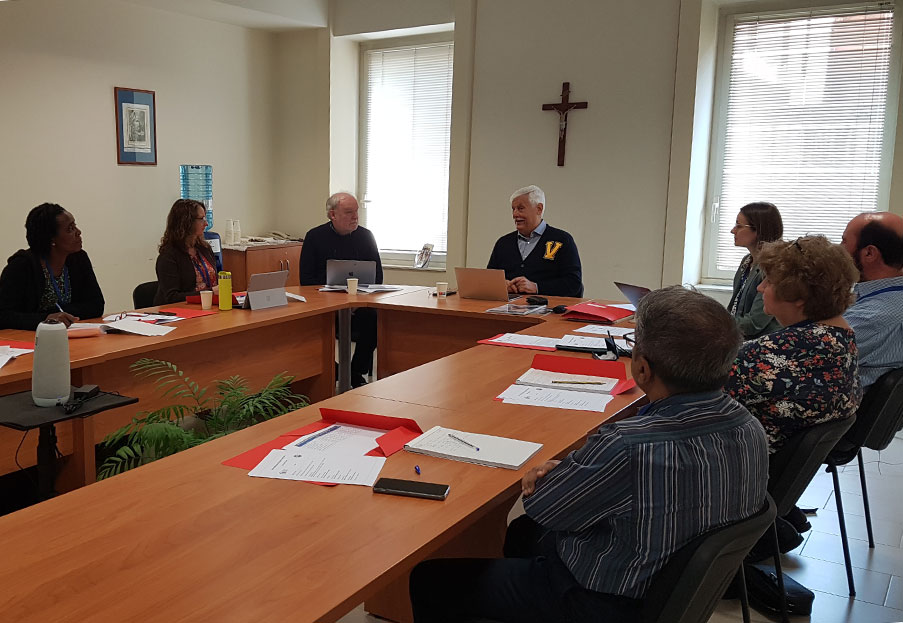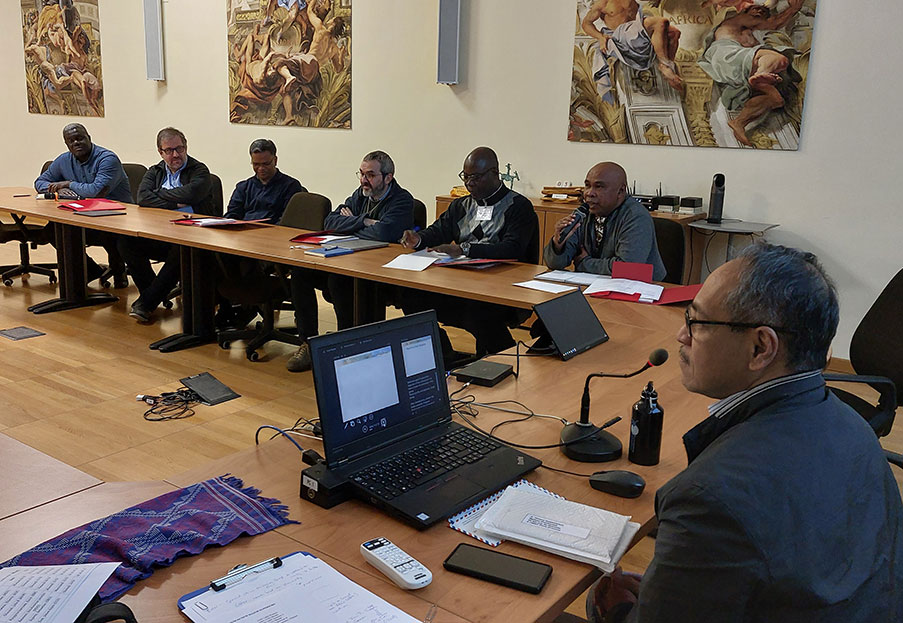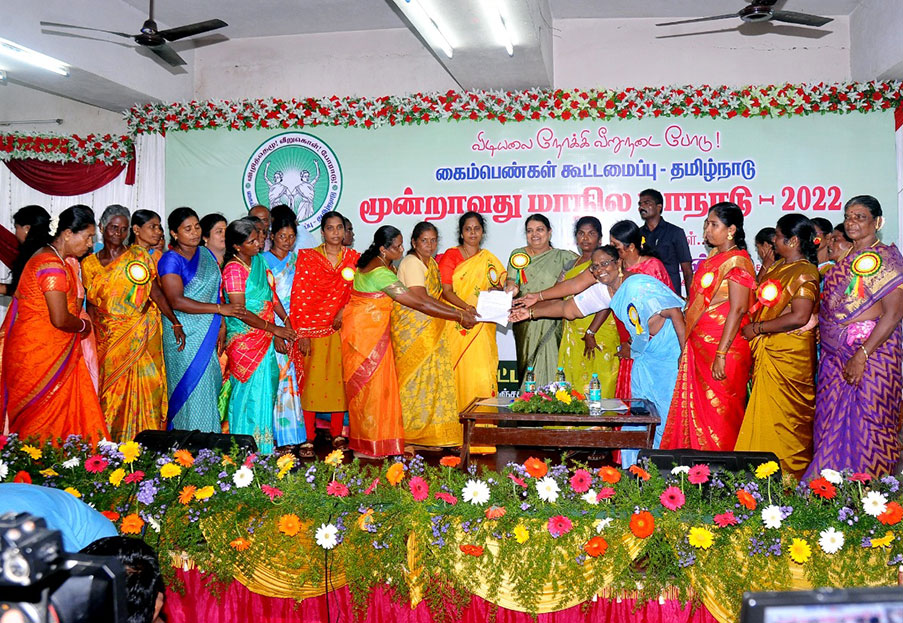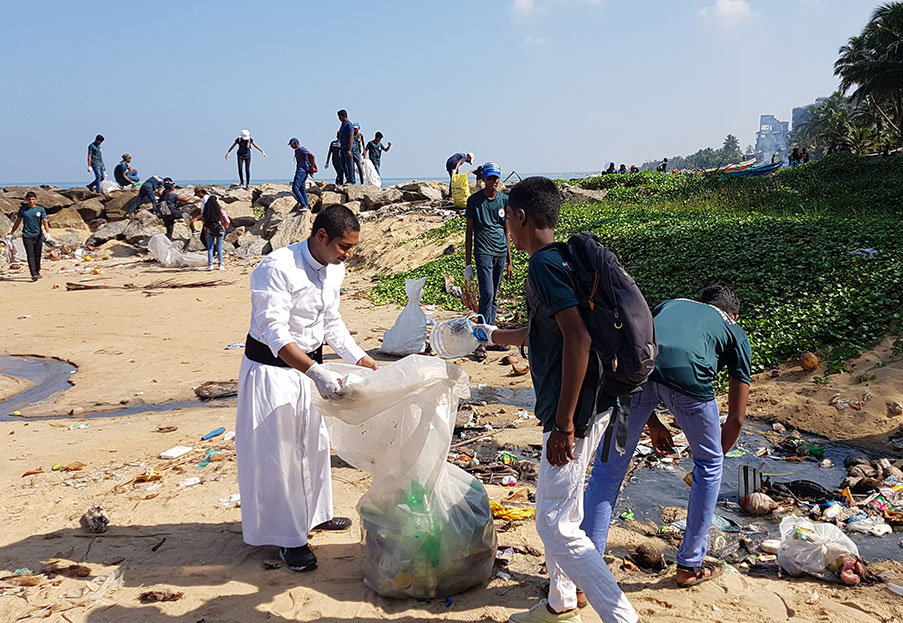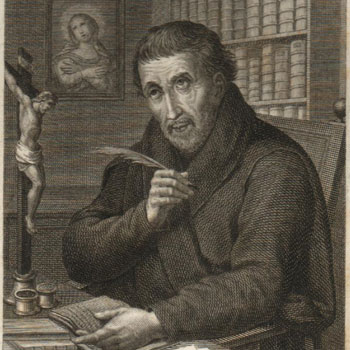CERAP social. “A hopeful future” for young Africans
Esso-Molla Marcel Tchabounono | Interim
director of ASMU, Province of West Africa
[From “Jesuits 2023 - The Society of
Jesus in the world”]
The fruit of the Centre de Recherche et d’Action pour la Paix (Centre for Research and Action for Peace) is evident in the vocational training it offers young people
The morning of 24 February 2022, in Abidjan, capital of the Ivory Coast: the garden at CERAP or to use its full name, the Centre de Recherche et d’Action pour la Paix (Centre for Research and Action for Peace) resounds with cheers and the joyful shouts of young people. Writ large on their parents’ faces is a sense of satisfaction, the hope that their children will have a better future. Their tutors give thanks, while the guests all share in the joy of the occasion. This is the graduation ceremony for young people who have just completed three-year trade apprenticeships. Today, they are receiving their diplomas, plus any kit of tools or equipment they will need in the future.
Twenty-four-year-old Esther strides along the podium as though she were on a catwalk. She is bursting with pride in her homemade outfit. You can see the joy etched on her face. Yet reaching this point has demanded huge reserves of courage and self-denial. Esther trained as a seamstress, under the watchful eye of a boss, while taking complimentary courses in adult literacy, human formation and management training. Every week, during her three-year course a tutor visited her. Today, for Esther, “the village’s oil has changed into Kerosene,” to quote a hit song from Abidjan. In other words, her life has changed, for Esther has come a long way from listening to the naysayers, those voices that once kept her trapped in poverty and a fatalistic outlook. Now she sees her life as a blessing. Esther is one of the large number of 14- to 25-year-olds on the Ivory Coast who have either never been to school or else dropped out but who receive help from ASMU (Action Sociale en Milieu Urbain – Social Action in Urban Settings). Since 1985, the social division of CERAP has been offering young people like these opportunities for a brighter future via trade apprenticeships.
As we would say today, ASMU’s farsighted
decision to “walk alongside the poor, those whose dignity has been wounded, the
excluded and those who society deems worthless, in a mission of reconciliation
and justice,” is inspired by the preferential option of the poor. Something held
dear by the Church, this option is also intrinsic to the mission identity of
the Society of Jesus. For the Jesuits, this involves partnering with the
mission of Christ who came to establish a world where faith and justice are the
values guiding every action. It means highlighting the dignity of the human
person by reducing the social and economic exclusion of the most
vulnerable and deprived young people.
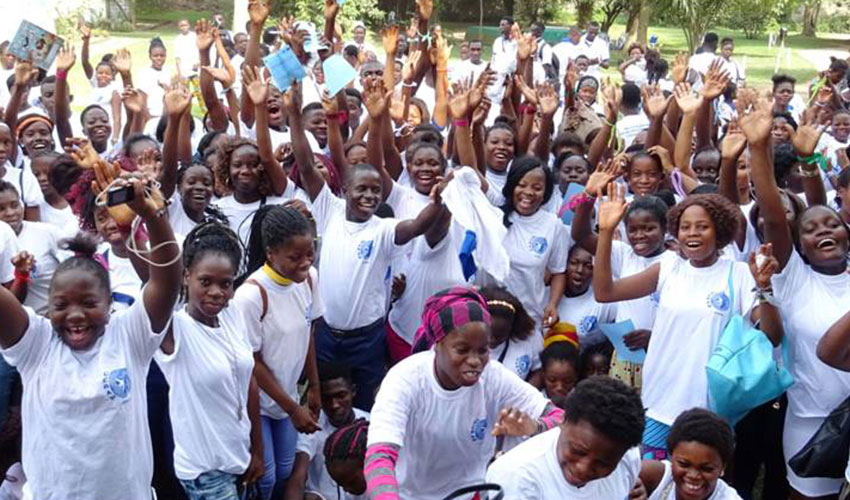
So, how does the programme work?
Given this rationale, every single young person who requests vocational training must go through a motivational process that leads them to discern and confirm their professional orientation. Subsequently, they receive training in their chosen trade while attending short courses in literacy, human formation, eco-citizenship and management.
A few testimonies
The testimonies young people give us are deeply moving. For Rachel, learning to read and write was a game-changer. Today she’s a seamstress. Once she was illiterate. There is absolutely no doubt that this kind of formation has a huge impact on young people’s lives. Audrey explains: “I used to do nothing. Today, I’m a hairdresser. What had the greatest impact on me? The day on eco-citizenship. I just can’t throw anything, even something trivial, on the ground now. That day really moved me.” Junior is an upholsterer now. Previously, he was a layabout, busy doing nothing. He says: “The change in me is enormous. I used to wake up and just go and chat to my friends. I don’t have the time for that anymore. I have to work and get my life together. I can hold my head up in front of adults now. Other people are also saying that I’ve changed.”
The management course had the most impact on Raïssa. She says: “The course on administration is really helping me. I always make a list now before going to the market. I also make lists of my work expenses and income.” Jacques, who is now a carpenter, speaks for everyone when he says: “Now, my life has some meaning. Tomorrow, I’ll be a better person.” We should also mention here in passing that once the vocational training period is over, we accompany young people as they create their own jobs or find work.
It is to preserve these complimentary pathways
via comprehensive vocational training that ASMU offers an opportunity to young
people from deprived backgrounds in Abidjan to change their lives, or turn the
village oil into kerosene. By helping them to abandon a fatalistic mindset and
the fear of failure, ASMU offers these young people a golden opportunity to
escape personal hardship. The idea is that having done so, they will embody
hope for the future in their own society. ASMU has decided to invest in the
education of marginalised young people to prepare for a new, fast-emerging
world. Like Nelson Mandela, ASMU is convinced that “education is the most
powerful weapon you can use to change the world.”
